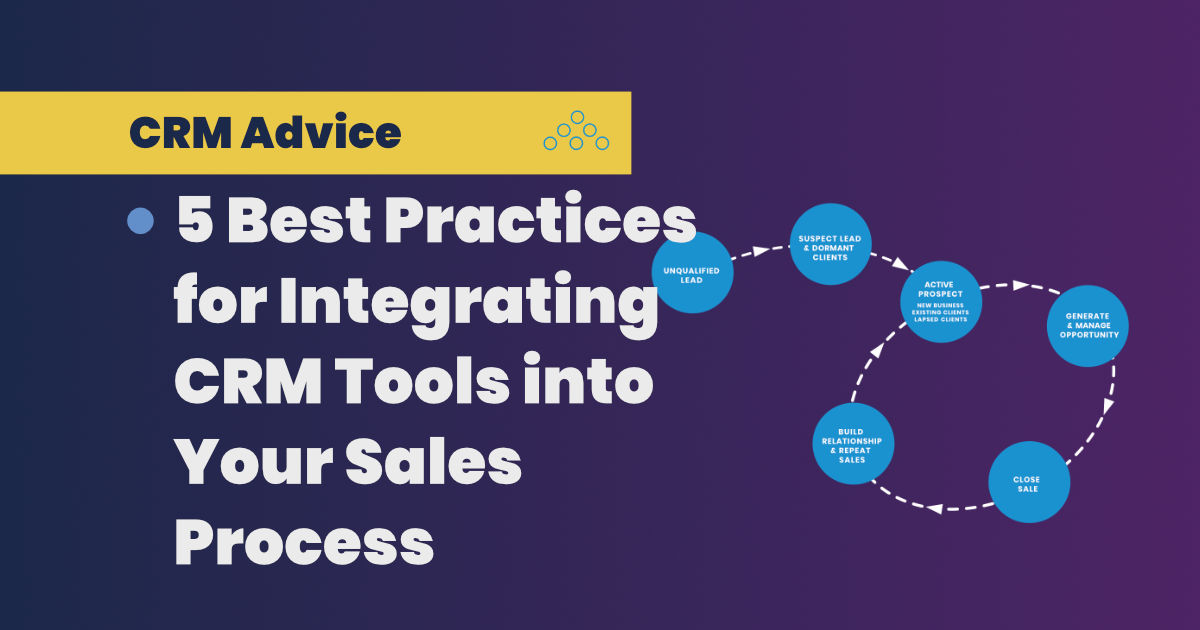Are you a sales manager struggling to extract real value from your CRM?
You’re not alone.
Many find themselves equipped with powerful CRM systems yet fail to harness their full potential, resulting in missed opportunities and stagnant sales figures.
This post aims to change that narrative by focusing on practical CRM integration strategies that can transform your sales process from merely functional to exceptionally fruitful.
We’ll explore how to optimise your CRM’s effectiveness through smart integration tactics designed to help you leverage the technology to its fullest, turning your CRM from a static database into a dynamic tool that actively enhances your sales strategy.
1. Leverage Connector Integrations for Workflow Automation
Connectors are powerful tools that facilitate the integration of your CRM with various third-party applications. An integration enables automatic data flow between systems, reducing manual entry and the associated errors.
For instance, using connectors like Zapier or Automate.io, you can configure automated triggers that seamlessly update client project details in your CRM whenever a new service ticket is submitted via your support platform. This ensures your sales team has real-time, accurate data to better respond to client needs.
- Identify repetitive tasks within your sales process that can be automated.
- Choose a connector that integrates with both your CRM and other critical business applications.
- Set up automation workflows that trigger based on specific actions, such as new customer entries, sales closures, or follow-up reminders.
2. Customise and Personalise Your CRM to Match Business Needs
A CRM system should manage relationships and adapt to your business’s unique operational needs. Customisation can range from adding custom fields that capture specific customer information to creating tailored dashboards that track key performance indicators (KPIs) relevant to your business.
- Review your sales process to identify unique data points that need tracking.
- Work with your CRM provider to add custom fields and configure the system to support unique workflows.
- Regularly update your CRM configurations to align with any changes in your business model or sales strategies.
3. Optimise Mobile and Cloud-Based CRM Solutions
In today’s mobile-first world, having access to CRM on the go is essential. Cloud-based CRM solutions offer accessibility from anywhere, enhancing the agility of your sales force. Mobile CRM apps allow sales reps to access and update customer data in real-time, directly from their mobile devices, which is crucial during client meetings or while on the road.
- Ensure your CRM solution offers a reliable and user-friendly mobile app.
- Train your sales team on how to use mobile CRM tools to access and update data effectively.
- Utilise cloud functionalities to store data securely and access it anytime, enhancing collaboration across teams.
4. Ensure Data Quality and Consistency
The integrity of CRM data is critical for making informed decisions. Poor data quality can lead to misinformed strategies and lost opportunities. Implementing regular data cleaning practices, validating data entries, and using data standardisation techniques are essential to maintain the accuracy and usefulness of your CRM data.
- Schedule regular data audits to identify and correct inaccuracies.
- Establish rules for data entry that include mandatory fields and format checks.
- Use CRM features that support data validation and de-duplication to keep your database clean and reliable.
5. Integrate CRM with ERP Systems
Integrating your CRM with an Enterprise Resource Planning (ERP) system can streamline information flow between sales and other departments, such as finance and inventory management. This integration provides a holistic view of customer interactions and internal operations, facilitating better resource management and customer service.
- Identify the touchpoints between sales data and other business processes that can benefit from integration.
- Choose an ERP system that can seamlessly connect with your CRM, or use middleware solutions to integrate them.
- Monitor the integrated system to ensure data flows smoothly and accurately between CRM and ERP.
How BuddyCRM Enhances These Integrations
BuddyCRM enhances each of these integration strategies with its robust features:
- Connector Integrations: BuddyCRM supports popular connectors and APIs for easy integration with many applications.
- Customisation and Personalisation: Offers unlimited custom fields and tailored configurations to meet specific business requirements.
- Mobile and Cloud Solutions: Provides a comprehensive mobile app and cloud-based accessibility to ensure your team is always connected.
- Data Quality: Features built-in tools for data cleaning and validation to maintain high data integrity.
- ERP Integration: Facilitates easy integration with ERP systems, enhancing data consistency across all business functions.
By implementing these CRM integration strategies and utilising a platform like BuddyCRM, your business can not only improve its operational efficiency but also gain deeper insights into customer behaviours and preferences, ultimately driving better sales outcomes.
Ready to unlock the full potential of your CRM and revolutionise your sales strategy?
Book a demo with BuddyCRM today and discover how our CRM solutions can transform your sales management. Experience firsthand how our tailored features can streamline your processes, enhance data accuracy, and boost your team’s productivity.
